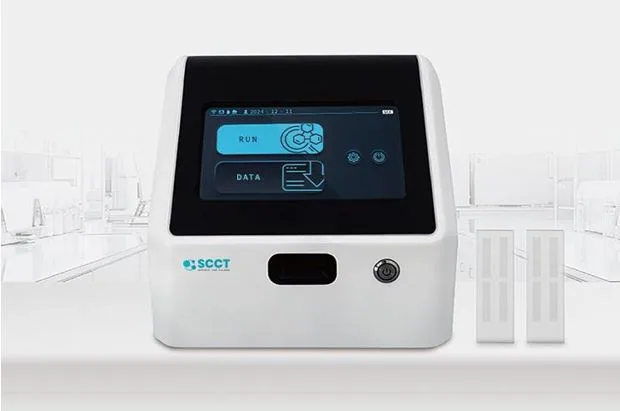The No-Nonsense Guide to Finding Your Perfect Local Therapist
Did you know that 90% of mental health and substance abuse workers are concerned that new patients won’t be able to access care? Finding a local therapist near me (or you) has become increasingly challenging, with more than half of providers reporting longer waitlists than ever before.
Despite these obstacles, connecting with the right mental health professional is certainly worth the effort. According to research, the relationship between you and your therapist is the most important factor in successful therapy outcomes. However, navigating the process of finding a good therapist can feel overwhelming. From understanding different therapy approaches to determining if your insurance will cover sessions that typically cost between $100-$200, there’s a lot to consider.
In this guide, we’ll walk through exactly what to look for in a therapist and how to find a therapist near me that fits your specific needs. Whether you’re wondering how to find a therapist covered by insurance or exploring online options (which studies show can be just as effective as in-person therapy for certain conditions), we’ve got you covered with practical, straightforward advice.
Clarify What You Need From Therapy
Before contacting a single therapist, taking time to clarify what you actually need from therapy will save you considerable time and money. Being specific about your goals helps both you and potential therapists determine if they’re the right fit for your needs.
Identify your emotional or mental health goals
When considering therapy, vague statements like “I just want to be happy” or “I feel stuck” express important feelings but make ineffective goals. Instead, ask yourself what specifically would make you feel less stuck or happier.
Effective therapy typically addresses several key areas:
- Enhancing self-awareness about thought patterns and behaviors
- Building self-acceptance and compassion
- Improving emotional regulation and coping strategies
- Strengthening resilience to navigate life challenges
- Developing clearer communication skills
To determine if therapy might help, consider: Does your concern cause significant distress? Is it interfering with important aspects of your life? Do you spend considerable time thinking about the problem each week?
Understand common therapy types and approaches
Different therapy approaches address various needs. When deciding how to choose a therapist, understanding these differences matters:
Cognitive Behavioral Therapy (CBT) focuses on changing thought patterns that affect emotions and behaviors. It’s typically short-term and particularly effective for anxiety and depression.
Psychodynamic therapy examines how past experiences and unconscious patterns influence current behavior.
Humanistic therapy emphasizes personal growth and self-determination, helping you develop to your full potential.
Specialized approaches exist for specific issues, including EMDR for trauma, dialectical behavior therapy for emotional regulation, and family therapy for relationship concerns.
Decide if you want in-person or online sessions
Both in-person and virtual therapy can deliver effective care—your choice depends on personal preferences and practical considerations.
In-person therapy offers face-to-face interaction in a carefully designed environment. Sessions typically last 40-60 minutes and occur weekly.
Online therapy provides similar benefits with added convenience. Research shows teletherapy is viewed positively by both patients and mental health professionals. Virtual options particularly benefit those with transportation issues, tight schedules, or who live in areas with limited access to specialists.
When deciding between formats, consider your comfort with technology, personal preferences, and the nature of your concerns. Some people find opening up easier in a dedicated therapy space, while others prefer the comfort of their home.
Understand Your Financial and Insurance Options
Understanding therapy costs is crucial when searching for mental health support. Let me break down your payment options so you can make an informed decision about finding the right help.
Check your insurance coverage for therapy
Thanks to federal law, most health insurance plans must cover mental health services similarly to how they cover physical health. This “parity” protection means limits on mental health services can’t be more restrictive than medical services. To verify your coverage:
- Call the number on your insurance card and ask specifically about behavioral health benefits
- Check if you need a referral from your primary care doctor
- Understand the difference between in-network and out-of-network providers
With in-network insurance, you typically pay copays of $20-50 per session, though some plans offer full coverage. Out-of-network providers require you to pay upfront, then submit claims for potential reimbursement of 50-80% after meeting your deductible.
Explore sliding scale and low-cost clinics
Many therapists offer sliding scale fees based on your income, potentially reducing standard rates by 25-70%. When exploring this option:
- Ask directly if therapists have sliding scale slots available (many reserve 20-30% of their caseload for reduced fees)
- Consider university training clinics staffed by supervised graduate students ($10-40 per session)
- Look into community mental health centers with fees starting around $10-25
Nonprofit options like Open Path Psychotherapy Collective offer sessions between $40-70 after a one-time $65 membership fee.
Consider out-of-pocket and teletherapy options
Without insurance, therapy typically costs $100-200 per session, though prices vary based on:
- Therapist’s expertise and specialization
- Your geographic location (urban areas generally cost more)
- Session format (individual, couples, or group therapy)
Fortunately, online therapy often provides a more affordable alternative. Many teletherapy platforms offer weekly plans ranging from $50-110, significantly less than traditional weekly sessions. Additionally, you save on transportation costs and avoid taking time off work.
Remember that effective therapy is an investment in your wellbeing—don’t hesitate to discuss financial concerns with potential therapists, as many are willing to work with your budget.
Search Smart: Tools and Directories to Use
Once you’ve clarified your therapy needs and budget, it’s time to start your search. Fortunately, several powerful online tools can streamline finding a local therapist near me—or you.
Use Psychology Today and other therapist directories
The internet has transformed how we find mental health support through specialized directories that connect clients with professionals. Psychology Today stands out as the largest and most comprehensive therapist directory, functioning as a sophisticated therapist finder rather than just a simple listing service. This platform helps match your specific needs with qualified professionals in your area.
Other valuable directories include:
- Good Therapy: Offers listings for practitioners and publishes mental health news
- Zencare: Provides therapist profiles with additional practice management features
- TherapyDen: Makes finding the right counselor more straightforward with its matching system
- Mental Health Match: Uses an algorithm to connect you with therapists based on your questionnaire responses
Filter by specialty, identity, and insurance
These directories become truly powerful when you use their filtering capabilities effectively. On Psychology Today, you can filter search results by:
- Mental health concerns (anxiety, depression, trauma, OCD)
- Therapy approaches (CBT, EMDR, psychodynamic)
- Insurance acceptance (BlueCross BlueShield, Aetna, Medicaid)
- Identity factors (gender, sexual orientation, ethnicity, language)
- Session format (in-person or online)
- Price range (many offer “$” to “$$$” indicators)
Start by entering your location—city, state, or zip code—then apply filters that match your priorities. Many directories also allow you to filter by therapists who offer sliding scale payments for reduced fees.
Ask for referrals from doctors or friends
Beyond digital tools, personal connections often lead to successful therapist matches. Ask your primary care physician for recommendations—they frequently maintain networks of mental health professionals. Additionally, trusted friends or family members who have had positive therapy experiences can provide valuable referrals based on firsthand experience.
When seeking referrals, remain specific about what you’re looking for rather than asking generally for “a good therapist.” The more details you provide about your needs, the more likely you’ll receive a helpful recommendation.
Evaluate Fit: What to Look for in a Therapist
Finding the right therapist involves more than just locating convenient providers—the therapeutic alliance between you and your therapist is a primary predictor of successful outcomes. After identifying potential therapists, your next step is evaluating who offers the best fit for your needs.
Check credentials and licensing
Legitimate therapists hold recognized credentials that indicate their education, training, and regulatory compliance. Look for common designations like Licensed Professional Counselor (LPC), Licensed Mental Health Counselor (LMHC), or Licensed Clinical Social Worker (LCSW). These credentials confirm they’ve completed required education, supervised clinical hours, and passed licensing exams.
Beyond basic licensing, consider whether a therapist has specific experience with your concerns. Effective therapy depends on finding someone qualified to address your particular issues.
Assess cultural sensitivity and communication style
Cultural competence significantly impacts therapy effectiveness. An ideal therapist communicates awareness of your culture, beliefs, and practices without imposing assumptions. Don’t hesitate to ask potential therapists about their familiarity with your specific cultural background during initial conversations.
Furthermore, note how the therapist communicates—do they speak clearly? Do they listen actively? The strongest predictor of therapeutic success is your perception of the relationship between you and the therapist.
Schedule a consultation and ask key questions
Many therapists offer 15-minute consultations to determine compatibility. Approach these conversations with curiosity, asking about:
- Their qualifications and licensing
- Experience treating concerns like yours
- Therapeutic approaches they use
- How they measure progress
- Payment policies and scheduling flexibility
Try 3–5 sessions before deciding
Experts typically recommend giving a therapist 2-3 sessions after the intake interview to evaluate fit. This trial period allows you to assess whether you feel comfortable and understood. The therapeutic relationship develops over time, consequently, making judgment after just one session often proves premature.
Remember that finding the right match might require trying multiple therapists—this is normal and worth the effort to secure effective mental health support.
Conclusion
Finding the right therapist certainly takes effort, but the impact on your mental wellbeing makes every step worthwhile. Throughout this guide, we’ve covered essential aspects of the search process—from clarifying your specific therapy needs to understanding financial options and evaluating potential matches.
Many people feel discouraged when their first therapy experience doesn’t click. Remember that finding the perfect therapeutic match sometimes requires trying multiple professionals. This reality doesn’t indicate failure but rather reflects the deeply personal nature of therapy relationships.
Most importantly, trust your instincts during your search. Your comfort level with a therapist serves as a reliable indicator of potential success. Questions about credentials, treatment approaches, or payment options deserve clear answers—quality therapists welcome these inquiries.
The therapist search might seem daunting initially, especially with current waitlists and accessibility challenges. However, armed with the strategies outlined in this guide, you now possess practical tools to navigate this process effectively. Mental health support remains an invaluable investment in yourself, therefore, persevere until you find the right professional partnership.
Your journey toward improved mental health starts with that first appointment. Though finding the perfect therapist takes time, the life-changing benefits of successful therapy make every step of your search worthwhile.





